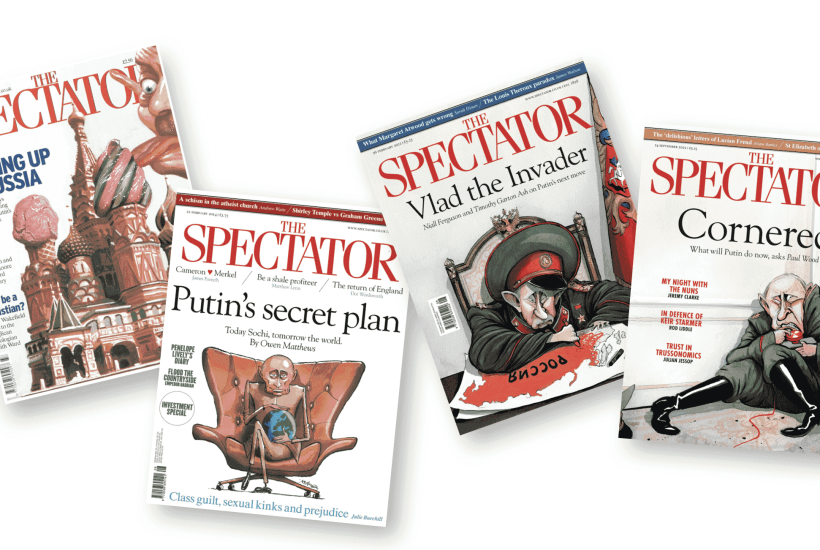Vladimir Putin turns 70 today. Since he became Prime Minister of Russia in 1999, some of The Spectator’s greatest contributors have asked the perennial questions: who is Putin, and what does he want? We’ve compiled the following pieces from our fully-digitised archive.
‘Joking with a nine-year-old boy at a televised awards ceremony by the Russian Geographical Society, President Vladimir Putin said: ‘The Russian borders don’t end anywhere.’’
Portrait of the Week, 1 December 2016
Appointment as Prime Minister
‘Not surprisingly, given his background, Putin has a lugubrious and somewhat sinister manner.
Already a subscriber? Log in
Subscribe for just $2 a week
Try a month of The Spectator Australia absolutely free and without commitment. Not only that but – if you choose to continue – you’ll pay just $2 a week for your first year.
- Unlimited access to spectator.com.au and app
- The weekly edition on the Spectator Australia app
- Spectator podcasts and newsletters
- Full access to spectator.co.uk




















Comments
Don't miss out
Join the conversation with other Spectator Australia readers. Subscribe to leave a comment.
SUBSCRIBEAlready a subscriber? Log in